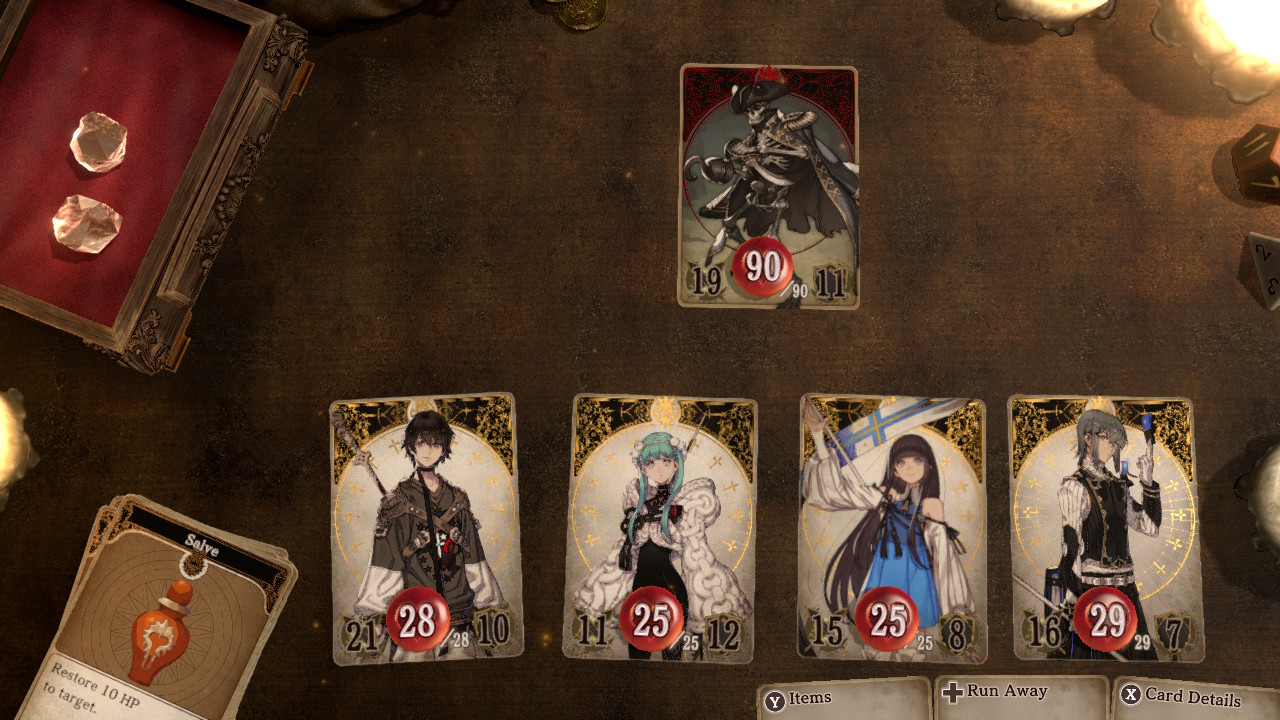 Source: SQUARE ENIX
Source: SQUARE ENIX
Voice of Cards: The Forsaken Maiden is the second game in the Voice of Cards series, taking on the same tabletop style of its predecessor, The Isle Dragon Roars. The world and dungeons in Voice of Cards: The Forsaken Maiden are entirely comprised of cards, with tiles indicating walls and accessible areas. Similarly to Voice of Cards: The Isle Dragon Roars, these areas are broken up by a separate velvet-spread table used for fighting enemies in random battles.
Both, however, can be enjoyed independently, each providing a different story with accompanying lore. This time around, the story follows the protagonist living on an island chain protected from monsters by maidens. The protagonist ventures out to assist their friend Laty, a mute woman who failed to fulfil her duty to become a maiden. As you journey across the island chain, you meet other maidens and uncover the mystery behind Laty’s troubled past.
Voice of Cards: The Forsaken Maiden
Bottom line: The improved features in this sequel were the perfect balance, but there were some much-needed quality-of-life features that failed to show up.
The Good
- Interactive dungeons
- Teamwork in party battles
- Engaging lore
The Bad
- Lacks monster index
- Insufficient weapon progression
Disclaimer: This review was made possible by a review code provided by Square Enix. The company did not see the contents of the review before publishing.
Voice of Cards: The Forsaken Maiden: What’s good
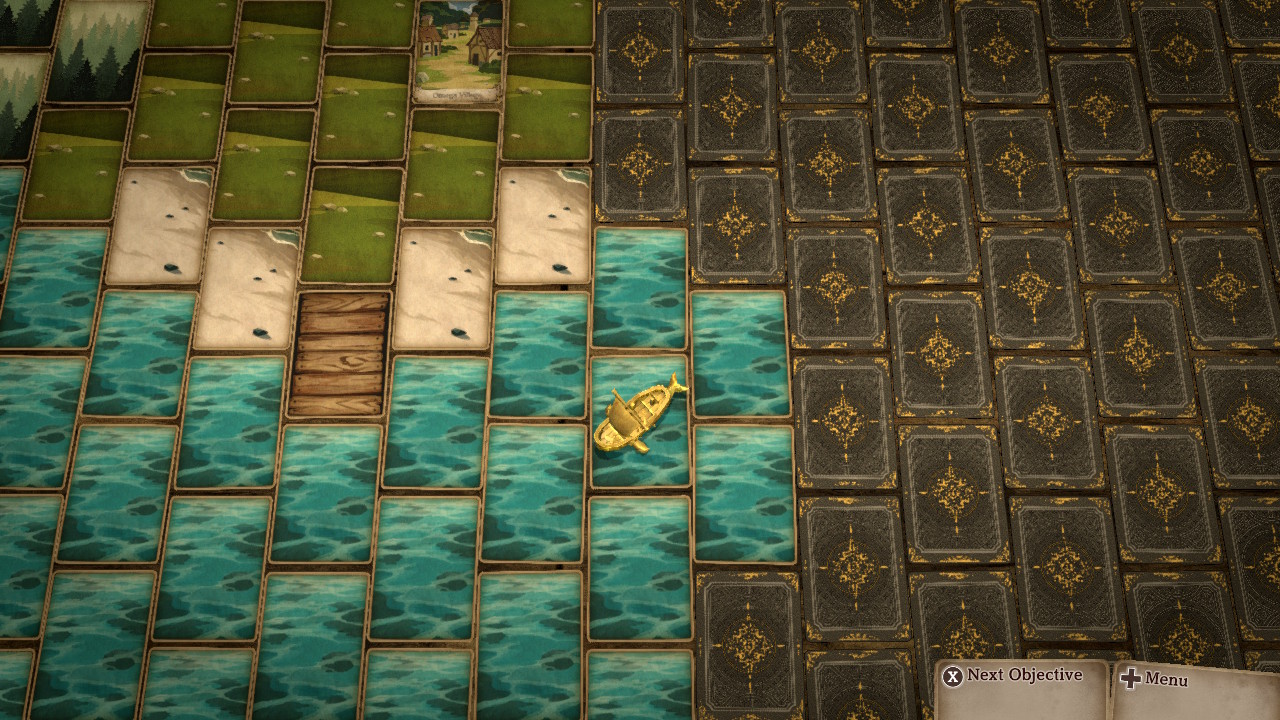
Source: SQUARE ENIX
The Foresaken Maiden uses the same foundation as The Isle Dragon Roars. The entire world is made up of cards, and more reveal themselves as you progress throughout the game. When combat begins, you’ll be moved over to a different board where you can select skill actions.
The first thing that stood out to me about this sequel is the increased level of interactivity with the world. With an entire world made up of cards spread upon a table, it can be difficult to make things engaging or convey intricacies to the player. Voice of Cards: The Forsaken Maiden introduces puzzles in dungeons, giving the player tasks involving environment manipulation in order to progress and open doors. The player can travel the seas as well, encountering shipwrecks and fishing spots.
| Category | Voice of Cards: The Forsaken Maiden |
|---|---|
| Title | Voice of Cards: The Forsaken Maiden |
| Developer | SQUARE ENIX |
| Publisher | SQUARE ENIX |
| Genre | Role-playing, Board game, Strategy |
| Game Size | 2.7 GB |
| Play Time | XXX hours |
| Players | Singleplayer, multiplayer elements |
| Format | Download |
| Launch Price | $30 |
What’s more, the game now offers assistance to players who mess up. Accessibility is important in games, and as someone who personally struggles with dungeon puzzles, I’m grateful that the game doesn’t force me to waste my time trying out countless combinations to get things right.
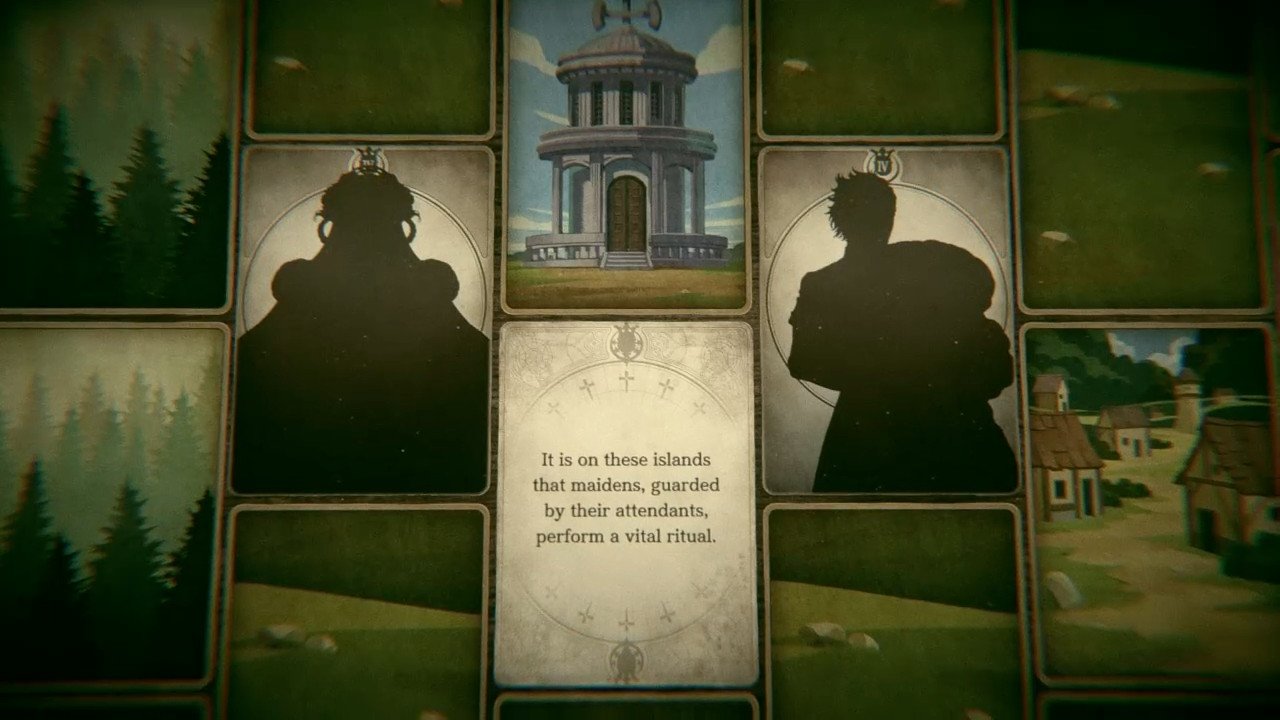
Source: SQUARE ENIX
While the dungeons and environments saw improvements, the battle table was by no means left out. Something I yearned for in the previous game was more interactions between characters, and the developers definitely delivered in the sequel.
Some special attacks are executed with gems, which function similarly to Battle Points and are added to the pool each turn. More powerful attacks use more gems, and managing them requires another layer of strategy. In exchange for a larger amount of gems, maidens and their attendants can execute Link Skills, teaming up to attack monsters with powerful elemental attacks. These Link Skills gave me the sense that my party characters really had each other’s backs in battle, further lending to the immersion.
Voice of Cards: The Forsaken Maiden takes players on a journey across seas, through dense forests, and among spirits in realms not seen by man. I thoroughly enjoyed the story and just how intricate details were. However, I felt myself yearning for more — the history of the maidens, what goes into their selection process, and more. If this game were to ever turn into a fantasy series, I’d be all over it. Storytelling in video games can be difficult to do when you have limited ways of showing your audience what’s going on, given that video games incorporate audio, video, and interactive elements in their storytelling. This game definitely got it right, and I can’t wait to see what else becomes of this series.
Voice of Cards: The Forsaken Maiden: What’s not good
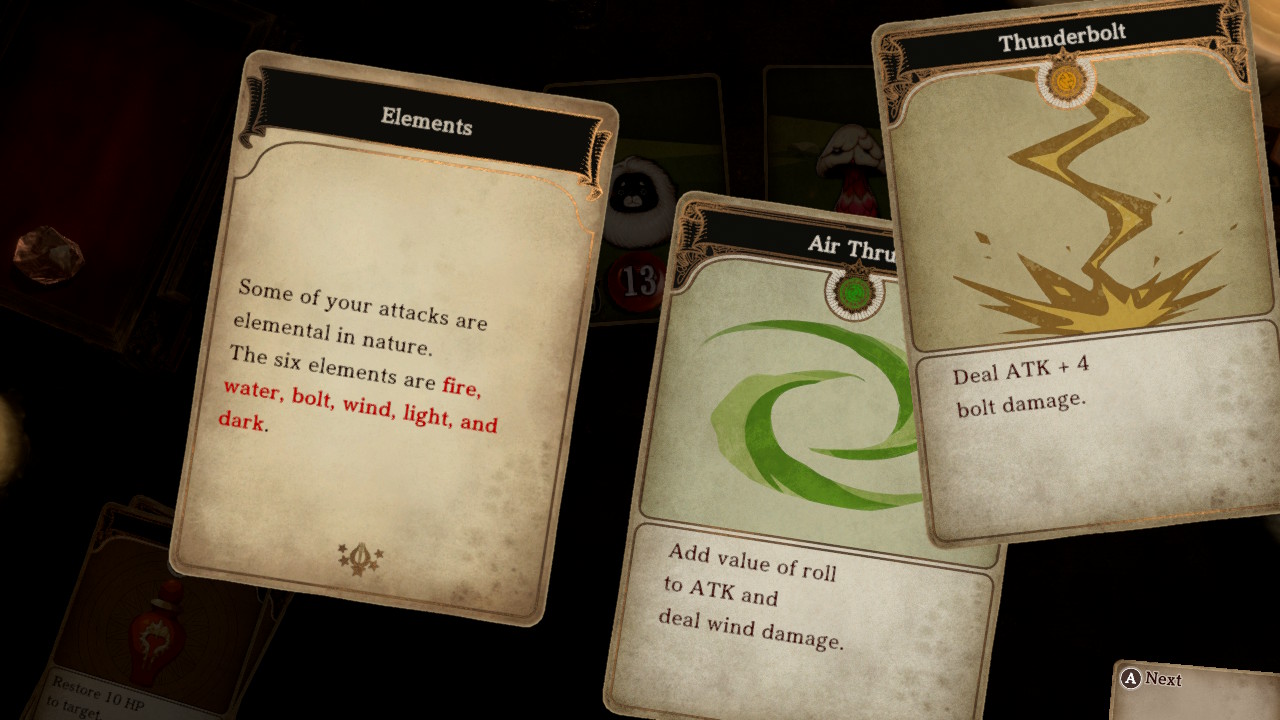
Source: SQUARE ENIX
When I heard that this sequel was headed to the Nintendo Switch, I hoped that some of the gripes I had with the game’s monster encyclopedia in the first game had been fixed. Your party members can utilize a variety of elemental attacks against enemies in combat. Different enemies have weaknesses and resistances to specific elements, and it’s within the player’s best interest to spread as many elements across your party as possible.
Unfortunately, there’s no indication of which elements enemies are vulnerable or resistant to in your card collection. Similar to a Pokédex, your card collection features lists of all characters, NPCs, items, and monsters you’ve encountered, but there is no indication of what “type” enemies are, nor what they resist, forcing players to either memorize all the type matchups or brute force whatever they’ve forgotten. After seeing how much this game improved on the shortcomings of The Isle Dragon Roars, realizing that this would continue to hinder my playthrough was disappointing.
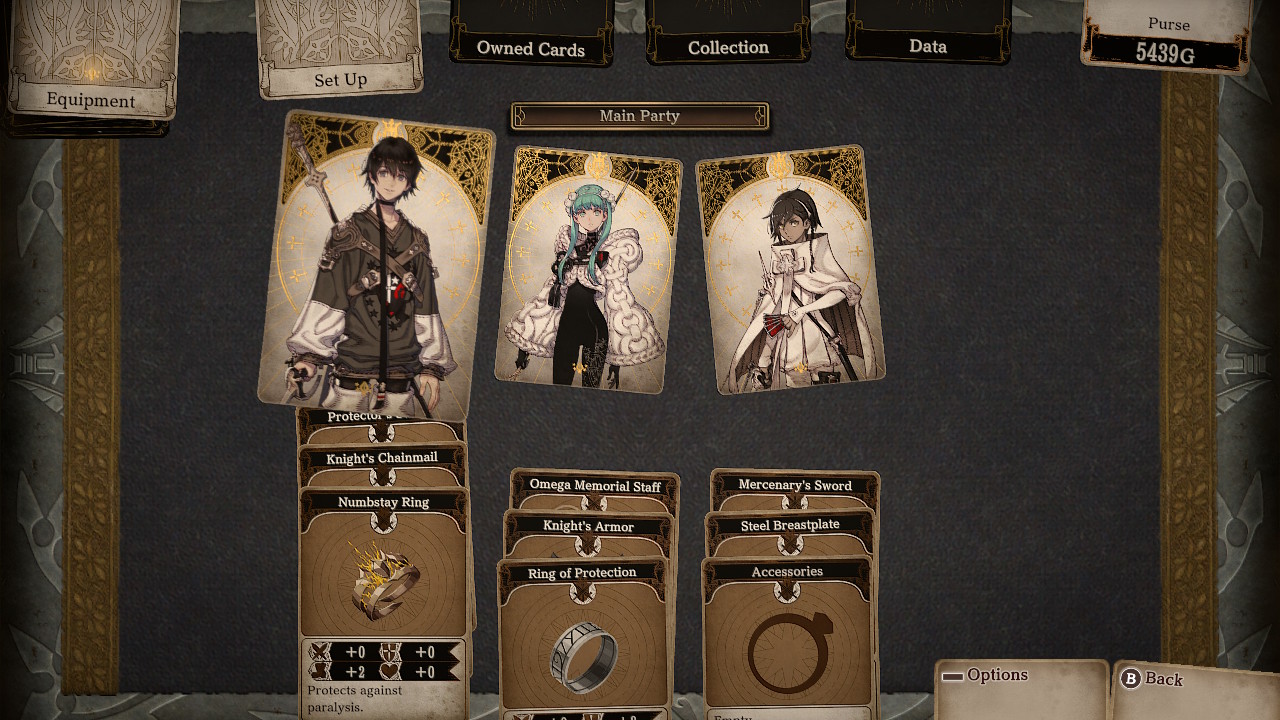
Source: SQUARE ENIX
If it’s one thing JRPGs usually get right, it’s making you feel like you’re progressing and growing as a character. As you gain experience, your level and stats improve, making you stronger and able to fight off bigger monsters. Players can purhase new weapons and equipment that allow them to hit harder and bear stronger blows.
While The Isle Dragon Roars handled this relatively well, Voice of Cards: The Forsaken Maiden lacks in that department. Players can upgrade the gear and weapons for the main character, but Laty’s weapon is fixed for the vast majority of the game. Even if her weapon needed to be permanent for story reasons, I would have liked to see upgrades to her weapon or character made as the party clears each island. Using a party of up to four characters feels kind of dull if you can only control the weapon progression of one of them.
Voice of Cards: The Forsaken Maiden: Should you play it?
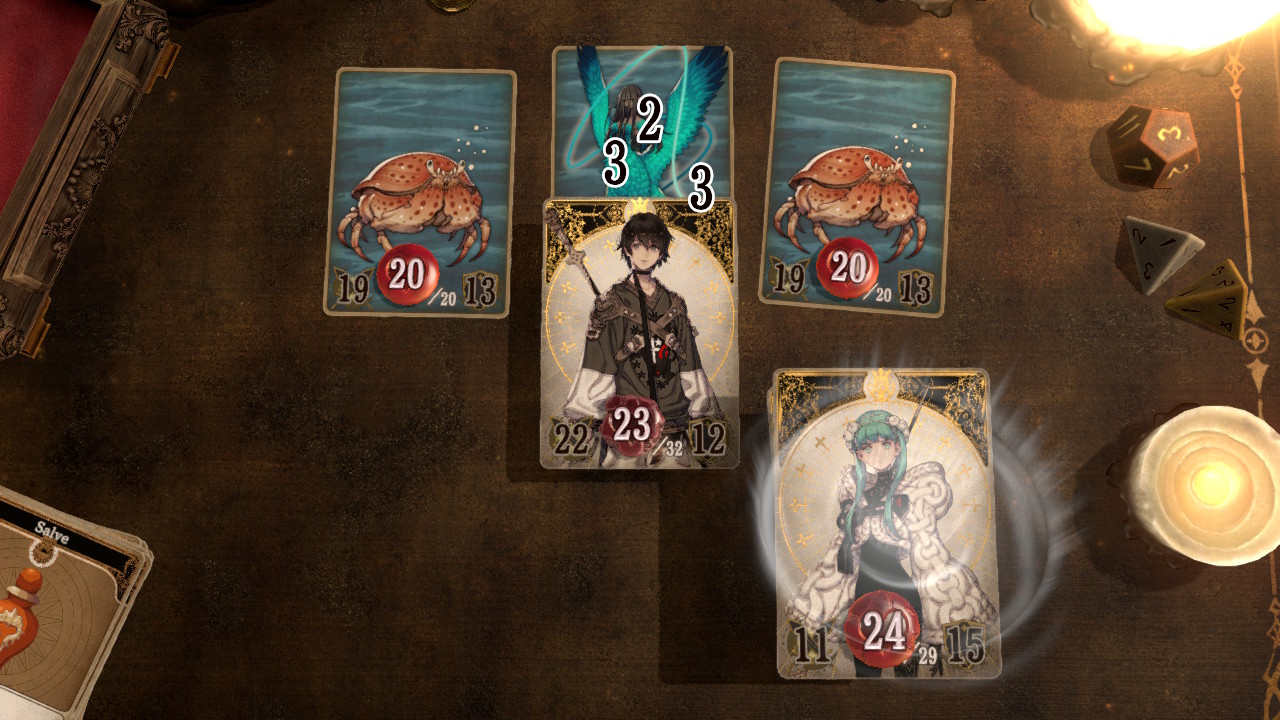
Source: SQUARE ENIX
Voice of Cards: The Forsaken Maiden provides a lovely, mysterious story through breathtaking presentation. The different cards and environments, the dim lit candles on the battle table, and other tiny details make it a well-done tabletop experience for on-the-go. Given the improvements made to gameplay mechanics since the last game, I still have hopes that the flaws mentioned will be ironed out eventually. I enjoy unique RPG games on Nintendo Switch, and the Voice of Cards series provides the exact memorable experience I’m looking for.
Source link



